- Home
- Site Index
- About Me
-
My Books
- Book List & Themes
- Strictly for Adults Novels >
-
Tales from Portlaw
>
- No Need to Look for Love
- 'The Love Quartet' >
-
The Priest's Calling Card
>
- Chapter One - The Irish Custom
- Chapter Two - Patrick Duffy's Family Background
- Chapter Three - Patrick Duffy Junior's Vocation to Priesthood
- Chapter Four - The first years of the priesthood
- Chapter Five - Father Patrick Duffy in Seattle
- Chapter Six - Father Patrick Duffy, Portlaw Priest
- Chapter Seven - Patrick Duffy Priest Power
- Chapter Eight - Patrick Duffy Groundless Gossip
- Chapter Nine - Monsignor Duffy of Portlaw
- Chapter Ten - The Portlaw Inheritance of Patrick Duffy
- Bigger and Better >
- The Oldest Woman in the World >
-
Sean and Sarah
>
- Chapter 1 - 'Return of the Prodigal Son'
- Chapter 2 - 'The early years of sweet innocence in Portlaw'
- Chapter 3 - 'The Separation'
- Chapter 4 - 'Separation and Betrayal'
- Chapter 5 - 'Portlaw to Manchester'
- Chapter 6 - 'Salford Choices'
- Chapter 7 - 'Life inside Prison'
- Chapter 8 - 'The Aylesbury Pilgrimage'
- Chapter 9 - Sean's interest in stone masonary'
- Chapter 10 - 'Sean's and Tony's Partnership'
- Chapter 11 - 'Return of the Prodigal Son'
- The Alternative Christmas Party >
-
The Life of Liam Lafferty
>
- Chapter One: ' Liam Lafferty is born'
- Chapter Two : 'The Baptism of Liam Lafferty'
- Chapter Three: 'The early years of Liam Lafferty'
- Chapter Four : Early Manhood
- Chapter Five : Ned's Secret Past
- Chapter Six : Courtship and Marriage
- Chapter Seven : Liam and Trish marry
- Chapter Eight : Farley meets Ned
- Chapter Nine : 'Ned comes clean to Farley'
- Chapter Ten : Tragedy hits the family
- Chapter Eleven : The future is brighter
-
The life and times of Joe Walsh
>
- Chapter One : 'The marriage of Margaret Mawd and Thomas Walsh’
- Chapter Two 'The birth of Joe Walsh'
- Chapter Three 'Marriage breakup and betrayal'
- Chapter Four: ' The Walsh family breakup'
- Chapter Five : ' Liverpool Lodgings'
- Chapter Six: ' Settled times are established and tested'
- Chapter Seven : 'Haworth is heaven is a place on earth'
- Chapter Eight: 'Coming out'
- Chapter Nine: Portlaw revenge
- Chapter Ten: ' The murder trial of Paddy Groggy'
- Chapter Eleven: 'New beginnings'
-
The Woman Who Hated Christmas
>
- Chapter One: 'The Christmas Enigma'
- Chapter Two: ' The Breakup of Beth's Family''
- Chapter Three: From Teenager to Adulthood.'
- Chapter Four: 'The Mills of West Yorkshire.'
- Chapter Five: 'Harrison Garner Showdown.'
- Chapter Six : 'The Christmas Dance'
- Chapter Seven : 'The ballot for Shop Steward.'
- Chapter Eight: ' Leaving the Mill'
- Chapter Ten: ' Beth buries her Ghosts'
- Chapter Eleven: Beth and Dermot start off married life in Galway.
- Chapter Twelve: The Twin Tragedy of Christmas, 1992.'
- Chapter Thirteen: 'The Christmas star returns'
- Chapter Fourteen: ' Beth's future in Portlaw'
-
The Last Dance
>
- Chapter One - ‘Nancy Swales becomes the Widow Swales’
- Chapter Two ‘The secret night life of Widow Swales’
- Chapter Three ‘Meeting Richard again’
- Chapter Four ‘Clancy’s Ballroom: March 1961’
- Chapter Five ‘The All Ireland Dancing Rounds’
- Chapter Six ‘James Mountford’
- Chapter Seven ‘The All Ireland Ballroom Latin American Dance Final.’
- Chapter Eight ‘The Final Arrives’
- Chapter Nine: 'Beth in Manchester.'
- 'Two Sisters' >
- Fourteen Days >
-
‘The Postman Always Knocks Twice’
>
- Author's Foreword
- Contents
- Chapter One
- Chapter Two
- Chapter Three
- Chapter Four
- Chapter Five
- Chapter Six
- Chapter Seven
- Chapter Eight
- Chapter Nine
- Chapter Ten
- Chapter Eleven
- Chapter Twelve
- Chapter Thirteen
- Chapter Fourteen
- Chapter Fifteen
- Chapter Sixteen
- Chapter Seventeen
- Chapter Eighteen
- Chapter Nineteen
- Chapter Twenty
- Chapter Twenty-One
- Chapter Twenty-Two
-
Celebrity Contacts
-
Thoughts and Musings
- Bereavement >
- Nature >
-
Bill's Personal Development
>
- What I'd like to be remembered for
- Second Chances
- Roots
- Holidays of Old
- Memorable Moments of Mine
- Cleckheaton Consecration
- Canadian Loves
- Mum's Wisdom
- 'Early life at my Grandparents'
- Family Holidays
- 'Mother /Child Bond'
- Childhood Pain
- The Death of Lady
- 'Soldiering On'
- 'Romantic Holidays'
- 'On the roof'
- Always wear clean shoes
- 'Family Tree'
- The importance of poise
- 'Growing up with grandparents'
- Love & Romance >
- Christian Thoughts, Acts and Words >
- My Wedding
- My Funeral
- Audio Downloads
- My Singing Videos
- Bill's Blog
- Contact Me
Chapter One
'Christmas Preparations'

Christmas in Portlaw has always been a time for its residents to look forward to. Whether one be a parish priest, publican, pagan or private citizen, it is a time to celebrate.
Our story opens during early December of 2012. The people of Portlaw are preparing to make their Christmas celebrations this year better and more memorable than ever before. However, some are planning much different festivities to others and Christmas remains as wide a contrast here as much as it does elsewhere in the world wherever the Christian and the atheist live side by side.
Our story opens during early December of 2012. The people of Portlaw are preparing to make their Christmas celebrations this year better and more memorable than ever before. However, some are planning much different festivities to others and Christmas remains as wide a contrast here as much as it does elsewhere in the world wherever the Christian and the atheist live side by side.
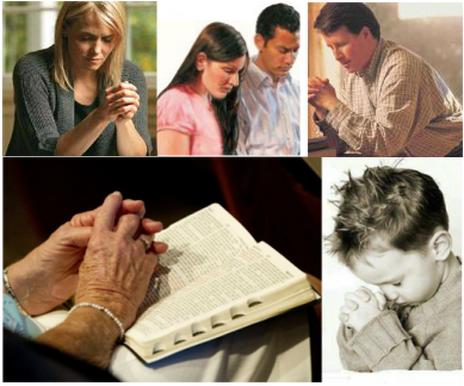
Look down any street in the town of Portlaw, peer inside any house and you will clearly see the contrast that exists between the inhabitants that live there and their next-door neighbours. However, it is in the residents of William Street where this contrast is the greatest of all. It is in William Street where the contrast exists between perceived saint and well-practised sinner.
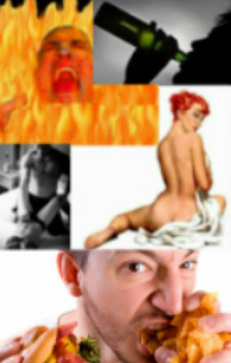
Approximately half of William Street expect to go to heaven on the Final Day of Judgement, whereas the remaining half of its residents couldn't give a damn whether it be up or down!
As far as the hedonists and atheists are concerned, they want every earthly pleasure they can possibly acquire just as soon as they are able to sample it. They have no intention of wasting their time and hoping for pie in the sky at some future date, 'on the off-chance' that a God truly does exist!
As far as the hedonists and atheists are concerned, they want every earthly pleasure they can possibly acquire just as soon as they are able to sample it. They have no intention of wasting their time and hoping for pie in the sky at some future date, 'on the off-chance' that a God truly does exist!
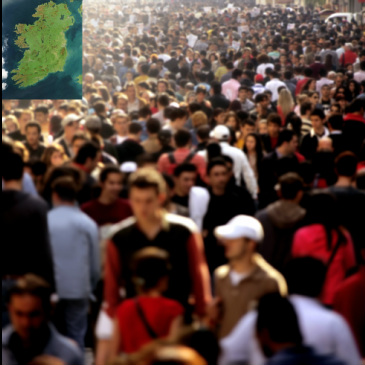
Prior to its entry into the European Union in January, 1999, Southern Ireland had become a country to which more immigrants arrived year upon year. The cultural and religious mix of its population began to alter significantly and this change in its demographic make-up was reflected in all its towns and cities throughout the Emerald Isle. County Waterford and Portlaw was no exception. In the 1970's the population of Portlaw had been 98% Roman Catholic. By the year 2002 however, Catholics only accounted for half of the town's residents and the remaining half were professed atheists, agnostics, pagans and hedonists!
Since 1999, Portlaw had started to witness a rapid influx of differing cultures and the town also saw a rapid increase of enmity between its Catholic population and its non-believers. Nowhere in Portlaw was this ill-will as obvious as it was between the residents of William Street. Here, the division was knife-edged and ill-will was the most common of cut-throat emotions to hand. The atmosphere was a like a ticking bomb; perched precariously on top of a tinder box, ready to explode at the next spark of trouble! Within the space of a few years, William Street had come to represent the type of war-zone street that is more readily found in County Derry, up north, where Catholic and non-Catholic remain in a perpetual state of animosity.
Since 1999, Portlaw had started to witness a rapid influx of differing cultures and the town also saw a rapid increase of enmity between its Catholic population and its non-believers. Nowhere in Portlaw was this ill-will as obvious as it was between the residents of William Street. Here, the division was knife-edged and ill-will was the most common of cut-throat emotions to hand. The atmosphere was a like a ticking bomb; perched precariously on top of a tinder box, ready to explode at the next spark of trouble! Within the space of a few years, William Street had come to represent the type of war-zone street that is more readily found in County Derry, up north, where Catholic and non-Catholic remain in a perpetual state of animosity.

By 2000, the town of Portlaw had become a town of segregation where all the Catholic residents of William Street occupied one full side of the street and non-believers occupied all the houses on the opposite side. Peace was highly precarious and a simple fall out between a neighbour from one side with their opposite number would be the only spark required to light the fuse and start another street battle. Whatever one did to keep the peace, crossing the road was never a part of it. It was as though peace on the street was only possible if everyone who lived on the street stayed on their own side of the track and never tried to cross over with the view of meeting minds on opposition ground.
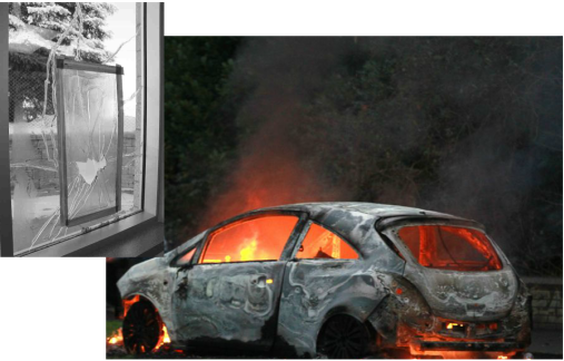
The fracas would often start with mere name calling, but after a few jibes and malicious comments had been flung backwards and forwards, the stone throwing would begin in earnest and all hell would break loose! Within a matter of minutes, every occupant from William Street would be joining in. The fracas would quickly escalate into a full blown battle as an avalanche of stones would cross the street in both directions; smashing any window that remained intact. When things escalated, it often resulted in someone setting a car alight with a petrol bomb.
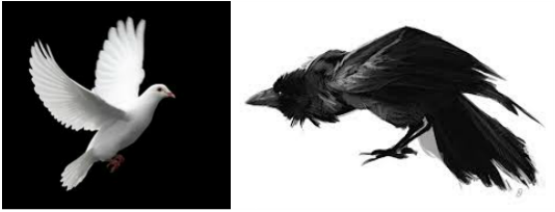
Other aspects of this religious and cultural apartheid also governed where one walked in safety in Portlaw. One quickly learned which part of town was safe to walk in and which was to be avoided. In William Street itself, even the sidewalks were divided. Whichever side one lived on, was the side one stayed on and was the side one walked on! To trespass the sidewalk of the opposite side would be tantamount to beginning a blood bath. The unspoken rule was to stay on your own side and keep your own thoughts unvoiced and inside your own head. If one had thoughts that were bursting to be expressed, common sense advised that you express them only to your own kind and only then within the hearing distance of their company. Do this and the tenuous peace of Portlaw might be preserved.

This volatile position of fragile peace between its residents prevailed in Portlaw until 2010, when in their infinite wisdom, the Councillors of County Waterford decided that a civic rule change was required that enabled a more balanced housing situation to be established. The discriminatory customs, practices and attitudes, which had started to take root in many places gradually since Ireland had entered the Eurozone became unacceptable to the Commissioners of the European Parliament. The Commissioners decided to stamp out all manner of discrimination once and for all throughout the whole of Europe. They seemed determined to rid nations of all past flags so that a federated Europe could now fly under one standard.
So faced with the prospects of a massive fine from the European Parliament if Southern Ireland didn't comply with the European directive, each Irish county was asked to select one town within its borders to trial a new form of social engineering; which if successful, would be rolled out as a model to be replicated country wide throughout the remainder of the south.
All of the houses in Portlaw simultaneously received an Enforcement Order from the Waterford County Council. The Enforcement Orders obliged some residents to exchange houses with other Portlaw residents, as specified by the Waterford County Council. This directive affected the residents of William Street far more than anywhere else in Portlaw, as the division which had existed there had always been far starker than in the rest of Portlaw. The directive instructed half of the residents on one side of the street to exchange houses with half of the residents on the other side. Any material loss in property value would be financially reimbursed by county council compensation.
So faced with the prospects of a massive fine from the European Parliament if Southern Ireland didn't comply with the European directive, each Irish county was asked to select one town within its borders to trial a new form of social engineering; which if successful, would be rolled out as a model to be replicated country wide throughout the remainder of the south.
All of the houses in Portlaw simultaneously received an Enforcement Order from the Waterford County Council. The Enforcement Orders obliged some residents to exchange houses with other Portlaw residents, as specified by the Waterford County Council. This directive affected the residents of William Street far more than anywhere else in Portlaw, as the division which had existed there had always been far starker than in the rest of Portlaw. The directive instructed half of the residents on one side of the street to exchange houses with half of the residents on the other side. Any material loss in property value would be financially reimbursed by county council compensation.

Portlaw was in effect, being used by the the powers that be as a trial in forced friendships. 'If it works here it will work anywhere' seemed to be the maxim of the day in Brussels. After the Enforcement Orders had been reluctantly complied with, all Roman Catholic residents of Portlaw had a non-believer as their neighbour at either side of them, and vice versa. One resident loved God above all others, while their neighbour idolised pleasure for pleasure's sake! One resident seemed prepared to serve God until the day he died whilst another seemed hell bent on serving nobody but himself.
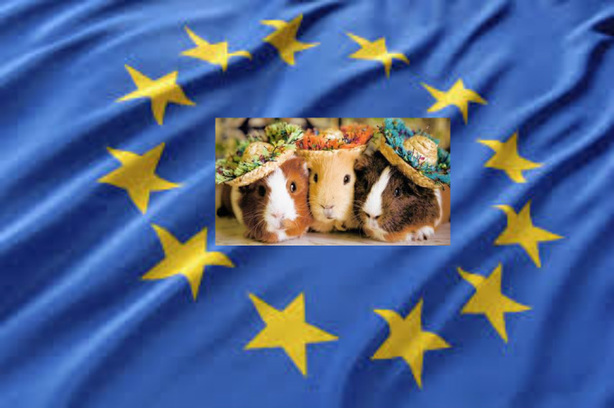
To their everlasting credit, the goodly citizens of Portlaw seemed to give the experiment an honest chance to work, but if the Waterford Councillors and the Irish Government thought that the electorate of Portlaw would readily readjust to this dramatic change in neighbourly circumstances without some manner of protest, they had another think coming!
For almost a year following the compulsory exchange of houses, resentment remained high and bitterness of thought between neighbours prevailed. All the Portlaw citizens considered themselves as being no more than European guinea pigs; as being no more than the forced filling in a sandwich of spite which had been cooked up and garnished in the political corridors of Brussels.
For almost a year following the compulsory exchange of houses, resentment remained high and bitterness of thought between neighbours prevailed. All the Portlaw citizens considered themselves as being no more than European guinea pigs; as being no more than the forced filling in a sandwich of spite which had been cooked up and garnished in the political corridors of Brussels.

Portlaw has never been the type of place in which moderation has been an easy bedfellow to settle down with. It is and always has been a place of extremes. It is a place where half measures have never been tolerated both inside or outside any public house.
The Roman Catholics of William Street aren't just the run-of-the-mill Sunday Christians that seem to represent many a church attender today. No! They are nothing less than staunch in their beliefs and wholly unquestionable in their faith. Indeed, William Street on most days of the week can be viewed from top to bottom without sight of man or cat, but come Sunday morning and it becomes a bustling hive of human activity as the Roman Catholics keep the fourth commandment of their faith; to keep holy the Sabbath day.
'St. Michael's Roman Catholic Church' on the hill is so heavily attended every Sunday that it is approached by over 800 parishioners from each end and it is packed to the rafters half an hour before Mass commences. By the time that the service has started, the surplus congregation outside its doors spills all the way down the hill and across the bridge at the entrance to the town; ending up somewhere back in William Street. Any resident of William Street getting up late who wanted to be part of the Sunday congregation need only open their front door and stand in the tail end of the queue outside it. Indeed, to do so prevented any Catholic requiring confessional absolution from their parish priest for not having attending Sunday Mass.
The Roman Catholics of William Street aren't just the run-of-the-mill Sunday Christians that seem to represent many a church attender today. No! They are nothing less than staunch in their beliefs and wholly unquestionable in their faith. Indeed, William Street on most days of the week can be viewed from top to bottom without sight of man or cat, but come Sunday morning and it becomes a bustling hive of human activity as the Roman Catholics keep the fourth commandment of their faith; to keep holy the Sabbath day.
'St. Michael's Roman Catholic Church' on the hill is so heavily attended every Sunday that it is approached by over 800 parishioners from each end and it is packed to the rafters half an hour before Mass commences. By the time that the service has started, the surplus congregation outside its doors spills all the way down the hill and across the bridge at the entrance to the town; ending up somewhere back in William Street. Any resident of William Street getting up late who wanted to be part of the Sunday congregation need only open their front door and stand in the tail end of the queue outside it. Indeed, to do so prevented any Catholic requiring confessional absolution from their parish priest for not having attending Sunday Mass.

The non-believers in Portlaw, on the other hand, weren't particularly bad people. They were no less charitable, considerate or any less friendly to cats, dogs, horses and widows than their Catholic neighbours.
In fact, the main difference between these two distinct sets of Portlaw citizens was one of 'timing' and 'final destination'.
The Catholics believed that if they suffered during their earth life, they would be amply rewarded when they took up their place in heaven. The non-believers however, didn't intend to miss out on any of the pleasures of life on the slight off-chance of a higher being existing and so sought immediate gratification whenever possible. They wanted their rewards today, tomorrow and every day thereafter and were prepared to delay their earthly punishments if possible until they arrived at the gates of hell; a fate that the Catholics said surely awaited them! If they had to trample upon the values and beliefs of the Christian residents of Portlaw along the way, then that was a price they seemed prepared to pay.
Whatever their religious differences happened to be and however different their respective aims in life were, the people of Portlaw were similar in one major respect; they all looked forward to the Christmas period and their own distinctive type of Christmas celebration.
In fact, the main difference between these two distinct sets of Portlaw citizens was one of 'timing' and 'final destination'.
The Catholics believed that if they suffered during their earth life, they would be amply rewarded when they took up their place in heaven. The non-believers however, didn't intend to miss out on any of the pleasures of life on the slight off-chance of a higher being existing and so sought immediate gratification whenever possible. They wanted their rewards today, tomorrow and every day thereafter and were prepared to delay their earthly punishments if possible until they arrived at the gates of hell; a fate that the Catholics said surely awaited them! If they had to trample upon the values and beliefs of the Christian residents of Portlaw along the way, then that was a price they seemed prepared to pay.
Whatever their religious differences happened to be and however different their respective aims in life were, the people of Portlaw were similar in one major respect; they all looked forward to the Christmas period and their own distinctive type of Christmas celebration.
|
Click here for the next page
|
Click here for the previous page
|
